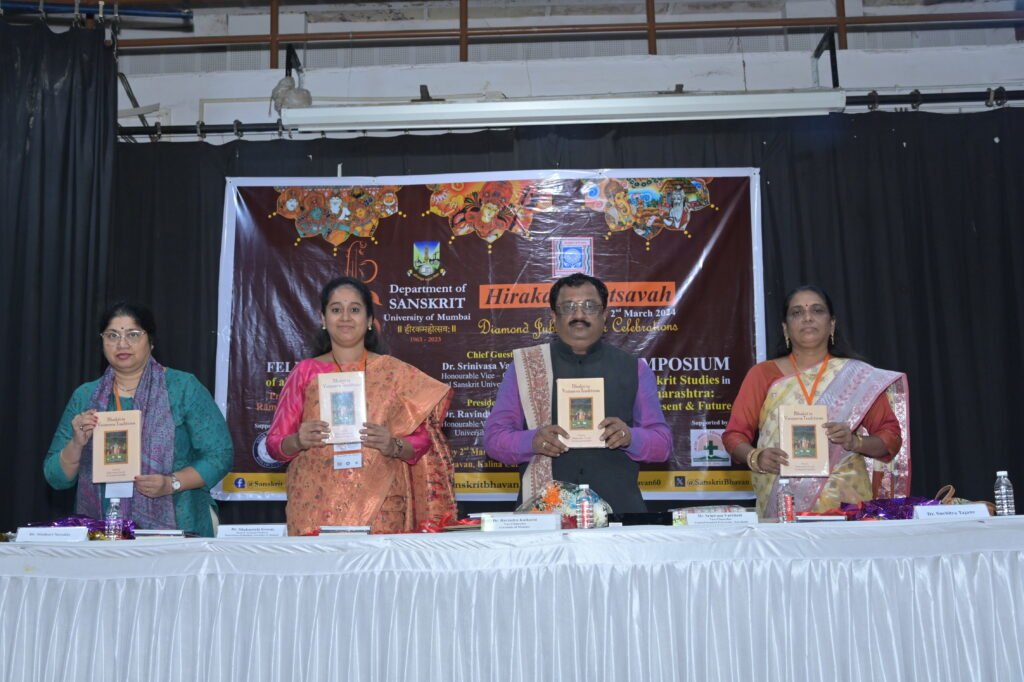
The book “Bhakti in Vaiṣṇava Traditions” edited by Dr. Shakuntala Gawde and Ferdinando Sardella explores various dimensions of bhakti in Vaiṣṇavism. Vaiṣṇavism, a cornerstone of India’s spiritual traditions, is deeply entrenched in the fertile grounds of bhakti, representing intense devotion and love towards the divine. This exploration delves into the intricate realm of Vaiṣṇavism, spotlighting its historical trajectory and philosophical bedrock, all harmonized by the resonant theme of bhakti. The book is organized into three parts: Bhāgavata Purāṇa and Bhagavad Gītā, Bhakti in Vedanta, and Regional Traditions. The first part elucidates the essence of bhakti as reflected in Bhāgavata Purāṇa and Bhagavad Gītā, which are known as pivotal texts of bhakti. These sacred scriptures bring to light the profound bond between individual consciousness, and the indwelling Lord. Bhakti, in its radiant form, serves as the beacon guiding this relationship. Enriched by tales of Kṛṣṇa and the teachings of dharma, these texts unravel the transformative essence of steadfast devotion. It delves into themes such as the nature of divine līlās, devotional Aesthetics and commentator’s role in interpretation of bhakti texts. The second part understands the concept of Vaiṣṇava-bhakti as seen in Śāṅkara Vedanta and it’s further development in Vedāntic texts of Rāmānuja, Svāminārāyaṇa, Nimbārka and Madhusūdana Sarasvati. This section offers a nuanced understanding of how bhakti is conceptualized within diverse Vedāntic traditions, adding complexity to the exploration and showcasing varied perspectives within the broader Vaiṣṇava framework. The final section deals with regional variations, highlighting diverse cultural expressions of Bhakti within Vaiṣṇavism. It captures the dazzling variety of regional Vaiṣṇava traditions including Vārkarī traditions, Caitanya Vaiṣṇavism and Braj Vaiṣṇavism. Each regional hue paints the canvas of Vaiṣṇava bhakti traditions, enriching its spectrum.



